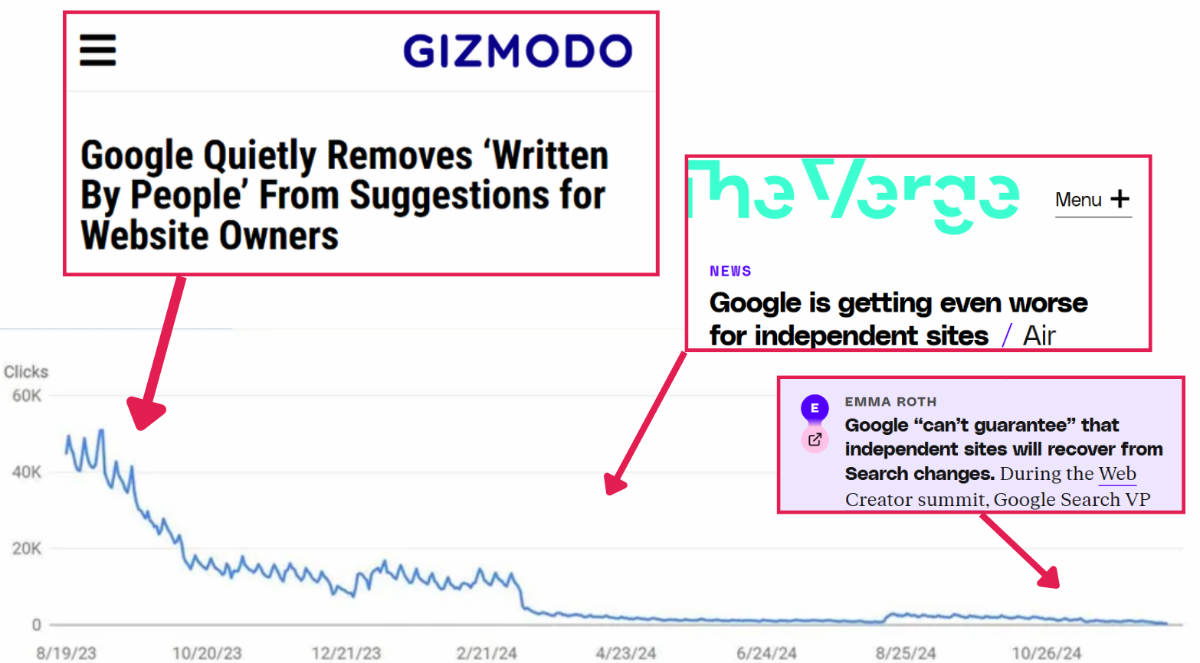

Avid Amoeba
- 8 Posts
- 182 Comments
Wouldn’t it be in the best interests of state sponsored hacking teams to hide or blame other states?
Of course. If I were leading an offencive team at CSIS, I’d do my best to procure machines and credentials in anorher country to launch the campaign from. Ideally a known adversary. That doesn’t mean that country isn’t executing their own attacks. In fact my charade wouldn’t work if I chose a country that has no track record of attacks.


While I’m plenty suspicious of Google as we all are, here’s two more trivial interpretations from software corpo perspective.
The Android OS isn’t an infinite sink of work. As systems, frameworks, libraries are developed to fill use case gaps, fewer and narrower gaps remain. Think how Windows, the OS, hasn’t changed fundamentally since Windows 8/10. Android has reached similar level of maturity for some time now. This means there’s less work to do and the pace of source code changes slows. In that context it makes sense to keep fewer branches and release less often.
The other interpretation is simply that Google might be removing workers from the project, thus being unable to maintain the current release schedule.
It’s likely both.


The Israelis have no idea what’s coming for them. They’ve gotten themselves into this right wing stasis and they seem to have become oblivious to the domestic dangers posed by the tools and tactics they’ve developed for “external use.” This shit is coming home and I’m guessing any dissent over expansionist policy will be the first to get repressed.


Well there’s definitely socialist dynamics in FOSS development. Most drivers in the Linux kernel were implemented because someone needed them, not for profit. The same is true for most things in the Debian repository. Also people generally own the means of producing that software. How do proprietary systems produced to maximize profit compete with software written to just work and cost nothing? FOSS is doing software product dumping! :D And the rest of the software economy has grown tremendously as a result. Imagine having to pay good money for a compiler. There were huge barriers back in the day.


You’re obviously not wrong on the relationships between these variables. There’s however use value in just-good-enough, easy-to-write, bloated software in that it could enable value creation and higher efficiency elsewhere. E.g. a shitty, power-hungry computer vision program that frees up 20 people from doing visual quality inspection of parts in a factory. These people can then do the manual work needed on additional lines, thus increasing the labour efficiency and output of the factory, and lowering the cost of the production per unit. Which frees up resources elsewhere in the economy, increasing the effect. All of which could more than offset the inefficiency of the original program and then some. Of course capitalism won’t necessarily select for these use cases for bloat. More likely than not we’re producing bloat that doesn’t offset anything. But in a non-capitalist environment, such bloat might very well be desired. Especialy if you’re trying to develop at speed that allows you to create deterrents before the US decides to liberate you from non-capitalism.


Do you think they won’t have a provision to revoke developer’s signing keys for reasons they determine? If they don’t, the whole malware-fighting angle would be meaningless. Once developer’s keys are revoked, their apps become uninstallable on Android that ships with Google apps. They could also easily uninstall apps signed with revoked keys.
I assume they’ll do this using chain of trust where they give signing keys to verified devs so that the apps don’t have to be signed by Google, but Android can still check if an app was signed by a Google-issued key.
E: Looking at this it says:
Register your apps
You’ll need to prove you own your apps by providing your app package name and app signing keys.
So you give your keys and I suppose they allowlist that package and keys. That means they’ll be able to revoke individual apps as well as dev keys.


I don’t think it’s about the data. There’s not much volume here. I think instead it’s about blocking apps they don’t like. Like some pesky ad blocking apps for YouTube. They know more people would reach for YouTube adblockers as they keep increasing the ads on the free tier as well as the price of the Premium tier. The way to prevent that is to make it extremely difficult to install such apps.


State planning and funding those plans. Taiwan, S. Korea and China (among others) have all planned their chip manufacturing capabilities and appropriately funded their development. Instead of relying on markets and firms to decide to do it, their governments decided that chips are strategically important input to their (and others’) economies and directed funding and labor to create those production capacities - education, machines, factories, etc. Critically we also used to do this in Europe and North America but we decided we’ll let the market make those decisions based on profit alone since the 80s. Turns out that the market had somewhat different ideas for making profit. Which is unsurprising since chip design and manufacturing is inherently long-term affair while threre’s plenty of profit to be made in short term lower risk bets. We still have an edge on the design side but I think it’s a matter of time till planners overtake us on that front too. You see what’s happening with Intel, laying highly skilled people off, investment banker directors considering selling their factories to TSMC, and the America First government proposing a foreign takeover instead of directing public capital and setting long term goals.


- •
- lemmy.ca
- •
- 1Y
- •

 English
English- •
- www.androidpolice.com
- •
- 2Y
- •

 English
English- •
- youtu.be
- •
- 2Y
- •


- •
- 3Y
- •









A Perplexity knockoff?